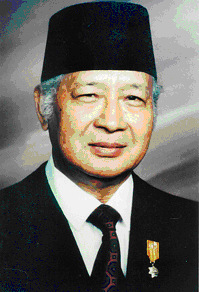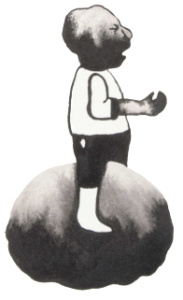 On 16 April the Indonesian Supreme Court reversed its earlier verdict of 30 August 2007 in which Time Magazine (Asia) was ordered to pay Indonesia’s former dictator Suharto damages in the amount of 77 million euro. Suharto considered an article devoted to him to be a libelous. Kennedy Van der Laan was involved on behalf of Dow Jones, the New York Times and several other media companies in drafting an “amicus letter” in the review procedure.
On 16 April the Indonesian Supreme Court reversed its earlier verdict of 30 August 2007 in which Time Magazine (Asia) was ordered to pay Indonesia’s former dictator Suharto damages in the amount of 77 million euro. Suharto considered an article devoted to him to be a libelous. Kennedy Van der Laan was involved on behalf of Dow Jones, the New York Times and several other media companies in drafting an “amicus letter” in the review procedure.
In 1999 Time Magazine Asia published an article in which Suharto and his family were accused of having amassed a great personal capital during Suharto’s rule, and of having channeled this capital abroad. Suharto considered the article and the cartoons included in it to be libelous and claimed damages. His claims were denied both in first instance and on appeal. However, in the judgment of the Supreme Court of 30 August 2007 the claims were allowed after all, and Time Magazine was ordered to pay “the Great General of the Indonesian National Army (Retired)” damages amounting to one trillion rupiah, no less than 77 million euro. This judgment had vaste consequences for the freedom of the press in Indonesia and for international (media) corporations that are active in Indonesia.
Indonesian law has the option of requesting a judicial review of a judgment of the Supreme Court. Such a request is treated by a new panel of judges. Time Magazine filed its petition for review early 2008.
Because of the impact of the judgment, a number of large international media parties have taken the initiative of submitting an “amicus letter” as known under U.S. law. This document will contain a concise rebuttal of the judgment and request attention for the great consequences this judgment may have, should it become final and conclusive.
Kennedy Van der Laan was asked to contribute to the “amicus letter” since Indonesian law is partly based on Dutch law. For example, the judgment contains a reference to what is perhaps the best known landmark tort case of the Dutch Supreme Court: the Cohen/Lindenbaum judgment from 1919, also known in the Netherlands as Lindenbaum/Cohen.
The Supreme Court verdict is not yet available in English. Reuters reports that Hatta Ali, one of the judges in the Supreme Court says the verdict was reversed because “the story in Time magazine still is within the press code of conduct so it is not acting against the law”. Whatever the exact reasoning may be, the reversal may be an important step forward for freedom of speech in Indonesia.

